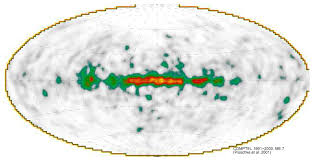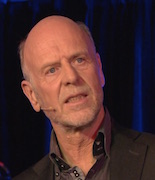
Nucleosynthesis for a Life
A symposium in honour of R. Diehl

 |
Nucleosynthesis for a Life |
 |
Roland started his career in nuclear physics (diploma at the Mainz Linear
Accelerator Lab), before joining the gamma-ray astrophysics group at MPE
in 1979(!). Based on a balloon flight of MPE's Compton telescope in Brazil in 1982,
he derived the first imaging result of the 26Al 1.8 MeV line from the Galactic Center.
This measurement, and more generally
experimental nuclear physics and astrophysics, has determined his scientific
life since then. Leading the calibration of the COMPTEL telescope,
he became quickly known as Mr. "1.8 MeV line" with the meanwhile famous
26Al map of the sky. With the launch of ESA's INTEGRAL satellite he
widened his interest to other nuclear lines in astrophysics,
and soon became the expert in nuclear astrophysics in Germany.
He has always pushed for improving the data analysis methods required for
the complex measurements in the gamma-ray domain.
Roland has engaged himself in a variety of occasions. He has (co-)organized
numerous conferences worldwide, and contributed in concerted activities to
promote nuclear astrophysics at the European and international level.
For more than 20 years he is teaching high-energy astrophysics at the
Technical University Munich to maintain a healthy influx of knowlegable
young scientists into his field of research. As part of the Munich Cluster
of Excellence "Origin and Evolution of the Universe" he has been deputy
coordinator of Research Area G on the "Origin of the Heavy Elements and
Chemical Evolution". He edited and co-authored a book on "Astrophysics with
Radioactive Isotopes" which just has been updated and extended in a second
edition.
And far beyond his field of expertise Roland has engaged for the benefit
of all scientists at MPE as an elected representative of the institute at
the Chemical-Physical-Technical (CPT) Section of the Max-Planck Society
for two periods, and for a substantial fraction of this time even as elected
representative of the CPTS to the Senat of MPG.
We will hold a day-long scientific symposium at the Max-Planck Institute of
extraterrestrial Physics on Friday, February 8th, 2019 (new seminar room, 1.1.18). There are no
conference fees,
but we ask that you register by sending an email to
J. Greiner
| Time | Speaker | Title |
| 09:30-09:45 | Opening | |
| 09:45-10:15 | N. Prantzos | A short history of Astronomy with Radioactivities |
| 10:15-10:45 | F. Thielemann | Stellar Explosions, Radioactive Books, and a joint European Cruise with EUROCORES and COST |
| 10:45-11:00 | R. Jahn | Compassion and commitment - Roland's fight against 19th century style hierarchies within the Max-Planck Society |
| 11:00-11:30 | Coffee break | |
| 11:30-12:00 | M. Leising | Gamma-ray lines studies of supernova nucleosynthesis |
| 12:00-12:30 | F. Aharonian | Nuclear gamma-ray lines from hot accretion flows |
| 12:30-12:50 | Th. Siegert | 511 keV annihilation emission: from black holes to dark matter |
| 12:50-14:00 | Lunch | |
| 14:00-14:20 | P. von Ballmoos | 1982 |
| 14:20-14:40 | W. Hermsen | Science breakthroughs with COMPTEL: the role of the Data Reduction Group, chaired by Roland |
| 14:40-15:00 | K. Mannheim | Nuclear de-excitation lines |
| 15:00-15:20 | W. Hillebrandt | Feeding the Fire: Thermonuclear Supernovae and the Story of 56Ni |
| 15:20-15:40 | Coffee break | |
| 15:40-16:00 | M. Krause | 26Al on the Fast Lane: Discovery of the Kinematics of Massive Star Ejecta |
| 16:00-16:20 | C. Kobayashi | Chemical enrichment of the Universe |
| 16:20-16:40 | B. Leibundgut | Different views on nucleosynthesis and excellence |
| 16:40-17:00 | U. Oberlack | Multimessenger physics in the MeV regime: the Allsky-ASTROGAM Mission |
| 17:00-17:30 | TBD | ad-hoc short addresses |